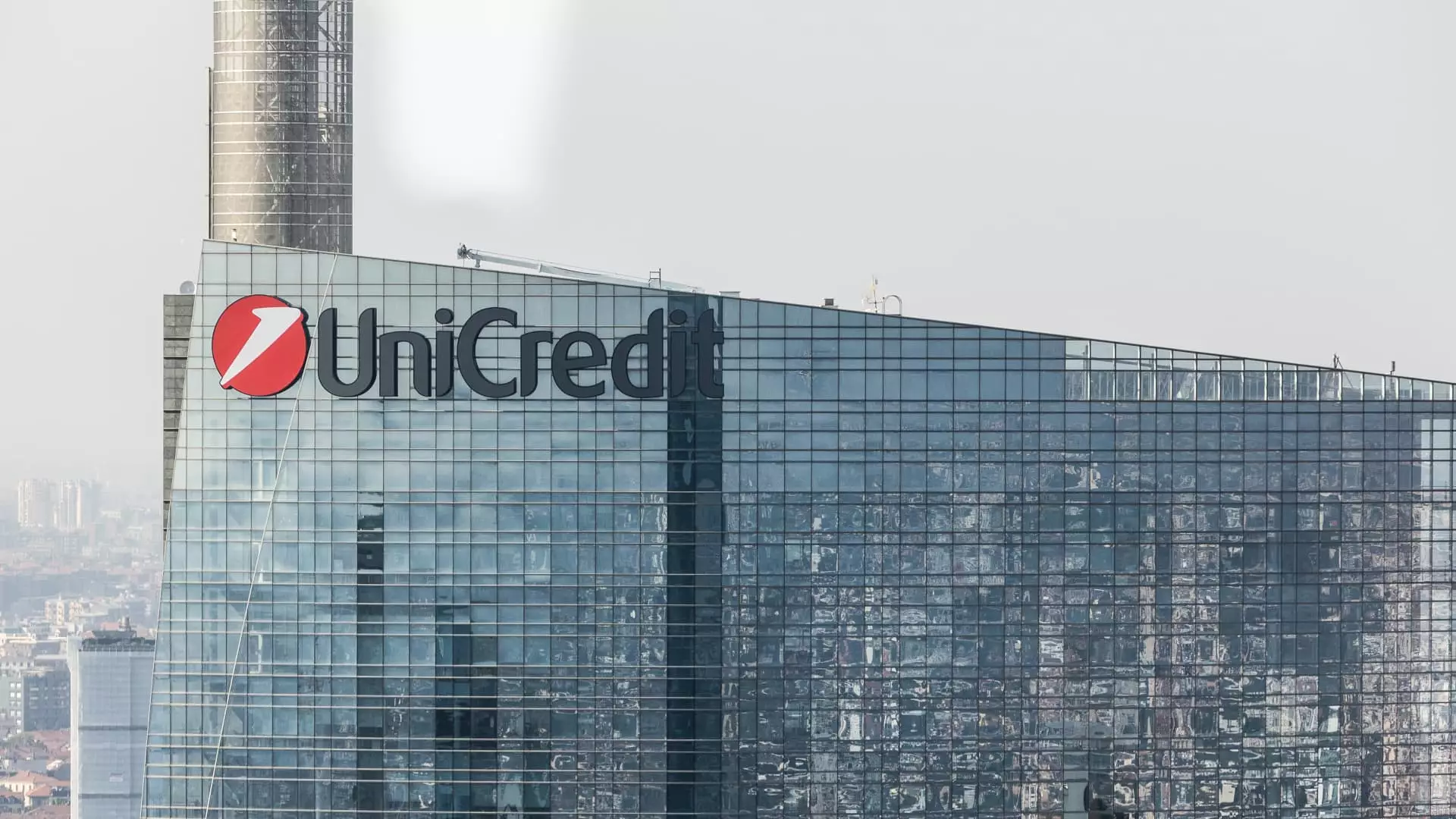While UniCredit has proudly showcased a significant 25% jump in net profit during the second quarter, this triumph appears to be as much a product of strategic maneuvering as genuine growth. An increase to €3.3 billion, driven by “one-off” items, masks the underlying reality—core revenues declined by 4.7%. The bank’s bottom line, shaped partly by special gains, raises questions about the sustainability of its apparent success. It reveals a troubling pattern common among major financial institutions: using extraordinary items to inflate apparent profitability, thereby distorting the true health of the bank.
Furthermore, UniCredit’s decision to lift its full-year profit outlook to €10.5 billion is both optimistic and potentially misleading. While on paper this appears as a victory, investors and stakeholders should adopt a skeptical stance. Relying heavily on non-recurring earnings can create an illusion of robustness while ignoring fundamental vulnerabilities. The slight dip in net interest income further underscores the unpredictability of traditional banking revenues in an era marked by economic turbulence, regulatory interventions, and geopolitical complexities.
Interpreting the Core Message: The numbers, although impressive, reveal a banking sector that is skillfully managing perceptions rather than reinforcing true financial durability. It begs the question—are banks like UniCredit genuinely strengthening for future resilience or merely recalibrating figures to appease shareholders and markets?
Regulatory Obstacles: The Shadow Over Ambition
Unsurprisingly, UniCredit’s bold expansion plans have encountered fierce political resistance, exemplified by Italy’s “golden power” intervention and the broader European skepticism. The withdrawal from the Banco BPM bid is not merely a tactical retreat but a stark reflection of how political and national security concerns are increasingly constraining business strategies. Rome’s exercise of the golden power rules—jurisdiction that allows interference in transactions deemed critical—places a significant, potentially unwarranted, barrier to free market operations.
The bank’s CEO, Andrea Orcel, candidly admits that the opacity and rigidity of these regulatory demands have rendered the proposed acquisition unviable, describing the process as a “drag” on progress. Such statements expose a worrying trend: national interests and political gatekeeping are undermining the free flow of cross-border banking consolidation, which could otherwise foster efficiency, innovation, and consumer benefit.
This standoff exemplifies a broader European challenge—an increasing tendency for governments to prioritize sovereignty over fostering an integrated, competitive banking landscape. While protecting national interests is understandable, the current approach risks stifling healthy market dynamics, leading to an insular financial sector that could become less adaptive and more vulnerable to external shocks.
The Political-Industry Nexus: The resistance isn’t just bureaucratic red tape; it’s a strategic tug-of-war. Banks seeking growth face the dilemma of balancing pragmatic expansion with the ideological and political sensitivities of their home countries. For UniCredit, this has meant abandoning opportunities that could have strengthened its European footprint, illustrating how political will can override economic rationale.
Strategic Direction: A Question of Priorities
Unlike the aggressive M&A fervor seen elsewhere, Orcel’s remarks reveal a shift in focus—from expansion for growth’s sake to consolidation of core strengths. His emphasis on creating value and fortifying the bank’s future highlights a pragmatic, perhaps even protective, approach in turbulent times. This pivot suggests that the obsession with acquisition targets—regardless of political opposition—may be ultimately counterproductive.
A center-leaning perspective would argue that banks like UniCredit have a responsibility to balance national security concerns with economic efficiency. Instead of simply capitulating to political barriers, stakeholders should advocate for reform that harmonizes sovereign interests with market realities. The current situation reflects a broader systemic failure to adapt European regulatory frameworks for a more integrated and competitive banking environment.
The bank’s continued holding of a substantial stake in Commerzbank—despite the setbacks—indicates resilience and adaptability. Yet, it also raises questions about the efficacy of European banking strategies if political interference continues to stifle cross-border growth. Is Europe possibly sacrificing economic vitality at the altar of sovereignty? Or is this a necessary trade-off in safeguarding national interests against a globalized financial landscape?
In Summary: UniCredit’s narrative is one of impressive, but heavily scrutinized, success woven into a complex web of political obstacles. Its decision to withdraw from ambitious acquisitions underscores the importance of a balanced approach—one that prioritizes long-term stability over short-term expansion. Unfortunately, without meaningful reforms to European regulatory policies—lessening political interference and fostering cooperative growth—the market risks stagnation, with banks like UniCredit forced into defensive postures rather than dynamic expansion. The challenge remains clear: how to reconcile national security and sovereignty with the imperative for a resilient, innovative European banking sector?

